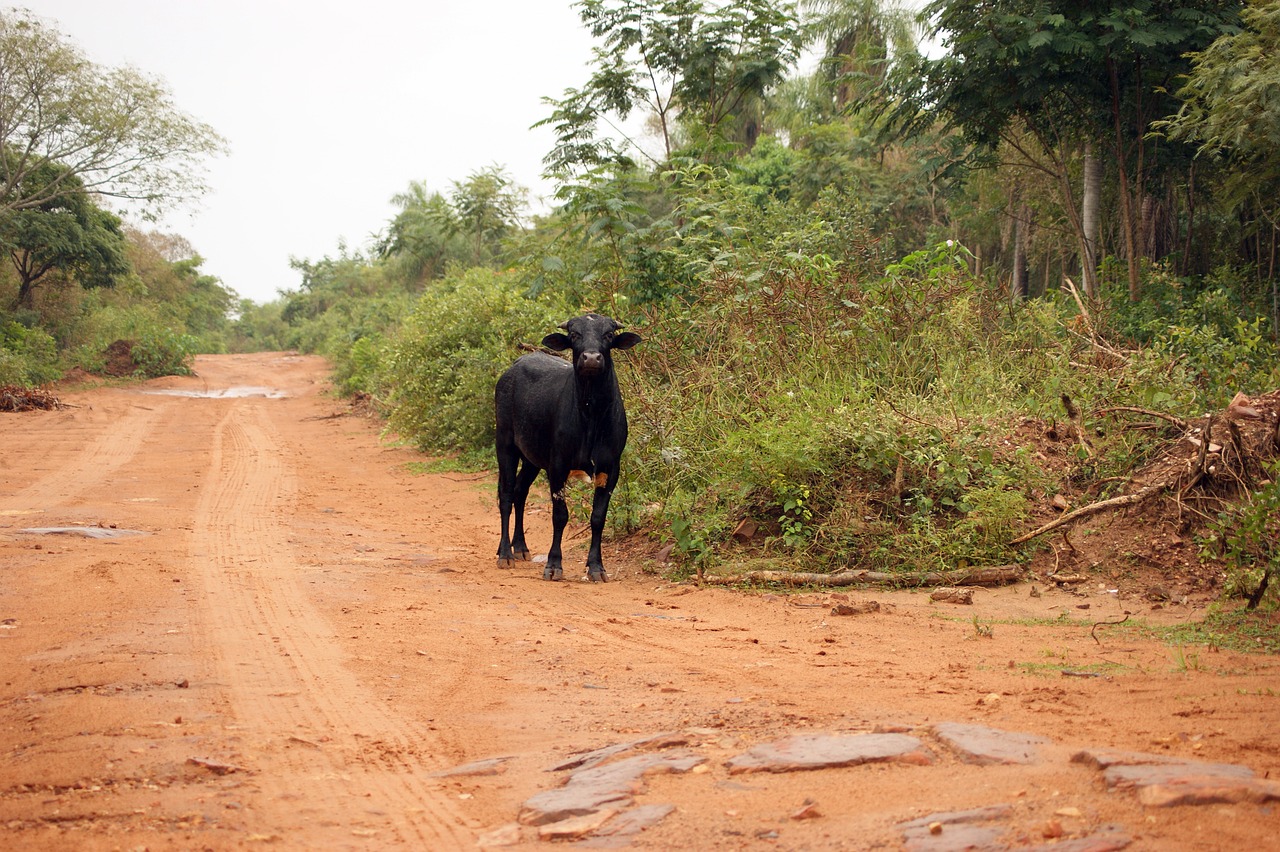Managing Finances and Payments while Working in Paraguay
Paraguay is a landlocked country in South America known for its rich cultural heritage, diverse landscapes, and growing economy. If you are planning to work in Paraguay, it is essential to understand how to effectively manage your finances and payments. This article aims to provide detailed information on various aspects of managing finances and payments while working in Paraguay.
Understanding the Paraguayan Currency
The official currency of Paraguay is the Paraguayan Guarani (PYG). It is essential to familiarize yourself with the currency and its denominations. The guarani is denoted by the symbol “₲” and is available in banknotes of 2,000, 5,000, 10,000, 20,000, 50,000, and 100,000 guaranies. Coins are available in denominations of 50, 100, 500, and 1,000 guaranies.
- 2,000 guaranies: This is the lowest denomination banknote and is commonly used for small purchases.
- 100,000 guaranies: This is the highest denomination banknote and is used for larger transactions.
- Coins: Coins are primarily used for smaller transactions and are available in different denominations.
It is advisable to carry a mix of banknotes and coins to ensure you can make payments conveniently based on the transaction amount.
Banking System and Financial Institutions
Paraguay has a well-established banking system with several local and international banks operating in the country. Some of the prominent banks in Paraguay include Banco Nacional de Fomento, Banco Itaú Paraguay, Banco Continental, and Banco GNB Paraguay.
- Banco Nacional de Fomento: It is a state-owned bank and offers a wide range of financial services.
- Banco Itaú Paraguay: It is a subsidiary of the Brazilian bank Itaú Unibanco and provides various banking services.
- Banco Continental: It is one of the largest private banks in Paraguay and offers comprehensive financial solutions.
- Banco GNB Paraguay: It is part of the GNB Sudameris group and provides banking services to individuals and businesses.
These banks offer services such as savings and current accounts, credit cards, loans, and foreign exchange facilities. It is advisable to research and choose a bank that best suits your financial needs.
Opening a Bank Account
To open a bank account in Paraguay, you will typically need the following documents:
- Identification: A valid passport or Paraguayan identification document (Cédula de Identidad).
- Proof of Residence: A utility bill or rental agreement that confirms your address in Paraguay.
- Tax Identification Number: You may need to obtain a Tax Identification Number (RUC) if you plan to conduct business or work as a self-employed individual in Paraguay.
Visit the bank of your choice with the required documents to initiate the account opening process. The bank will guide you through the necessary steps and provide you with the account details.
Electronic Payment Systems
Paraguay has witnessed significant growth in electronic payment systems, making it convenient for individuals to manage their finances. Some popular electronic payment systems in Paraguay include:
- Tigo Money: Tigo Money is a mobile money service that allows users to make payments, transfer money, and pay bills using their mobile phones.
- Pago Express: Pago Express is a widely accepted electronic payment system that enables users to make online and in-store payments conveniently.
- PayPal: PayPal is a global online payment system that allows individuals and businesses to make and receive payments securely.
These electronic payment systems offer a convenient and secure way to manage your finances and make payments in Paraguay.
Income Tax and Social Security Contributions
If you are working in Paraguay, it is important to understand the income tax and social security contribution requirements. The income tax rates in Paraguay vary based on income brackets. As of 2021, the progressive income tax rates range from 8% to 10% for individuals.
Additionally, both employees and employers are required to contribute to the social security system known as IPS (Instituto de Prevision Social). The social security contribution rates are based on the employee’s salary and the type of employment contract.
It is advisable to consult with a tax professional or your employer to ensure compliance with the income tax and social security contribution regulations.
Managing Expenses and Budgeting
To effectively manage your finances while working in Paraguay, it is crucial to create a budget and track your expenses. Consider the following steps to manage your expenses:
- Evaluate Your Income and Expenses: Calculate your monthly income and list all your expenses, including rent, utilities, groceries, transportation, and entertainment.
- Create a Budget: Allocate your income to different expense categories and set limits for each category.
- Track Your Expenses: Regularly monitor your expenses and compare them with your budget to identify any deviations.
- Save and Invest: Set aside a portion of your income for savings and consider investment opportunities to grow your wealth.
By following a budget and tracking your expenses, you can effectively manage your finances and ensure financial stability while working in Paraguay.
Insurance and Healthcare
While working in Paraguay, it is advisable to have health insurance to cover any medical expenses. The public healthcare system, known as IPS, provides healthcare services to workers affiliated with the social security system. However, private health insurance offers additional benefits and a wider range of healthcare providers.
Research and choose a suitable health insurance plan that meets your healthcare needs and provides coverage for medical emergencies, doctor visits, hospitalization, and medication.
Retirement Planning
Planning for retirement is essential to secure your financial future. In Paraguay, the social security system provides retirement benefits based on the number of contributions made during your working years. However, it is advisable to supplement your retirement savings with personal investments and savings.
Consider consulting a financial advisor to understand different retirement savings options and choose the most suitable plan based on your financial goals and risk tolerance.
Paraguay Image 1:

Managing Remittances
If you receive remittances from abroad while working in Paraguay, it is important to choose a reliable and cost-effective method to receive the funds. Some popular options for managing remittances include:
- Bank Transfers: Transfer funds directly to your Paraguayan bank account using international wire transfer services.
- Money Transfer Operators: Utilize international money transfer operators like Western Union or MoneyGram to receive funds in cash.
- Online Payment Platforms: Use online payment platforms like PayPal to receive and manage your remittances securely.
Compare the fees, exchange rates, and convenience offered by different remittance methods to choose the most suitable option for managing your remittances.
Paraguay Image 2:

Emergency Preparedness
While working in Paraguay, it is essential to be prepared for emergencies that may impact your finances. Consider the following steps to ensure financial stability during unforeseen circumstances:
- Emergency Fund: Build an emergency fund that covers at least three to six months of your living expenses.
- Insurance Coverage: Review your insurance policies and ensure adequate coverage for events like natural disasters, accidents, and health emergencies.
- Financial Planning: Create a comprehensive financial plan that includes contingency measures for unexpected events.
Being prepared for emergencies can help mitigate the financial impact and ensure you can handle any unexpected situations while working in Paraguay.
Investment Opportunities
Paraguay offers various investment opportunities for individuals looking to grow their wealth. Some potential investment sectors include agriculture, real estate, renewable energy, and manufacturing. It is advisable to conduct thorough research, seek professional advice, and assess the risks before making any investment decisions.
Consider working with a reputable financial institution or investment advisor to identify suitable investment opportunities that align with your financial goals and risk profile.
Paraguay Image 3:

Conclusion
Managing finances and payments while working in Paraguay requires understanding the local currency, banking system, electronic payment options, tax obligations, and budgeting techniques. It is essential to plan for healthcare, retirement, and emergencies while exploring investment opportunities to secure your financial future. By following these guidelines and seeking professional advice when necessary, you can effectively manage your finances and enjoy a financially stable life in Paraguay.
References
– Banco Central del Paraguay: www.bcp.gov.py
– Banco Nacional de Fomento: www.bnf.gov.py
– Banco Itaú Paraguay: www.itau.com.py
– Banco Continental: www.bcontinental.com.py
– Banco GNB Paraguay: www.gnb.com.py
– Tigo Money: www.tigo.com.py
– Pago Express: www.pagosonline.com.py
– PayPal: www.paypal.com.py
– Instituto de Prevision Social (IPS): www.ips.gov.py


